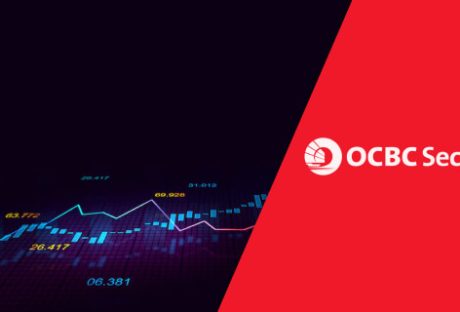Foreign Exchange (forex or FX), where currency pairs dance to global economic rhythms, provides traders with profit opportunities and safeguards to protect investments against possible dangers.
2023 brought new challenges and opportunities in FX trading that necessitated reassessing trading strategies to navigate through the turbulent waters of finance effectively. This article offers several strategies experienced traders may employ to lower risks while maximizing potential gains in this dynamic global marketplace.
Understanding Risk Management Principles is Essential
Risk management in trading forex is both an art and science, requiring careful examination of market conditions, understanding economic indicators, and employing strategies to protect investments against possible downturns. By using platforms like Metatrader 4, traders can delve into historical currency pairs’ data for comparison purposes or track market trends for informed decisions backed by data rather than speculation alone.
Utilize Stop Loss Strategies
Stop-loss strategies are integral in any forex trader’s arsenal. Acting like an automatic safety net, stop-loss orders protect losses and profits by closing trade positions upon reaching predetermined levels in the market. By setting these orders regularly without succumbing to emotional trading impulses, traders ensure their positions are safe from abrupt market fluctuations and safeguard them accordingly.
Leveraging with Caution
Although leverage can be invaluable to maximizing profits and minimizing losses in volatile forex markets, you should always use it cautiously and carefully. Employing leverage involves borrowing capital to expand potential returns, but in such an unpredictable market, it must only ever be employed responsibly and within one’s risk tolerance. Traders should assess their individual risk tolerance and understand market conditions well enough that using leverage does not jeopardize trading capital.
Diversification: Expanding One’s Wings
Diversifying investments across different currency pairs and markets is one way to protect traders against unanticipated market movements. It acts as an insurance against unexpected market shifts by not placing all their eggs in one basket, thus mitigating risk associated with adverse movements in one currency pair or market. However, diversification must be implemented correctly for optimal risk mitigation — making sure the investments chosen do not correlate and provide optimal risk-mitigation results.
Continuous Learning and Adaptation Is Crucial
The forex market is ever-evolving, driven by global events, economic indicators, and market sentiment. Staying up-to-date with international events as they occur and adapting your strategies accordingly are integral for successful forex trading. Attending webinars, reading recent publications, or participating in forums and discussions are great ways of gathering insight into market trends, strategies, or global events that might affect it.
Implement a Risk-Reward Ratio
A ratio defines how much one is willing to lose relative to any anticipated profit on any trade. Generally speaking, this should be three times what was risked, as this ensures disciplined trading that adheres to financial objectives and protects capital. Adherence to such ratios ensures discipline is upheld, capital is protected, and discipline remains intact in a trader’s trading strategy.
Maintaining Emotional Equilibrium
Emotionally volatile traders can be both thrilling and dangerous. Striking a balance where decisions don’t become clouded with fear, greed, or euphoria is essential in forex trading, as emotional decisions could lead to overtrading, risk-taking, or premature exits that endanger trading capital. Implementing strategies mechanically while adhering to trading plans ensures rational, calculated decisions that align with overall trading strategies.
Integrating Fundamental Analysis Is Integral for Business
Fundamental analysis plays an integral part in forex, where currency values are inextricably tied to economic indicators and global events, providing traders with a vital edge by helping them anticipate market movements and make informed decisions.
2023 presents no exception; fundamental analysis will likely remain an invaluable strategy as events like policy changes, economic indicators, and geopolitical events have an ever-increasing effect on currency prices affecting them in 2023 and beyond.
Understanding their effects allows traders to stay ahead of market shifts while making better-informed decisions with greater ease than competitors by helping anticipate market movements.
Engaging in Social Trading Activities
Social trading, the practice of drawing upon the knowledge and strategies employed by experienced traders to expand your own trading horizons, can be a beneficial strategy. Platforms offering such trading provide insight into successful traders’ strategies, allowing novice traders to learn, adapt, and potentially incorporate these strategies into their plans if deemed useful by experienced ones.
However, it is essential to conduct due diligence by understanding the underlying rationale behind all proposed strategies and aligning them with personal objectives and risk tolerance before beginning social trading activities.
Utilizing Automated Trading Strategies
Automated trading strategies or algorithmic trading have proven invaluable for today’s traders in an age when technology and trading have become inextricably intertwined. Automated trading involves employing algorithms or bots to make trades according to predefined criteria without manual intervention, eliminating emotional factors from trading, and helping traders execute strategies efficiently while taking advantage of trading opportunities and adhering to their trading plan more consistently.
Conclusion
Navigating the forex market presents both opportunities and challenges. Effective financial navigation requires strategies designed to mitigate risks while capitalizing on potential opportunities. This strategy must ensure you maximize risk management and potential gains.
However, while these strategies provide a comprehensive framework, the rapidly shifting forex market demands that traders remain adaptable, constantly increase their knowledge, and adapt their strategy in accordance with changing market conditions. Global events, economic indicators, market sentiment, and emotional triggers influence currency movements. Prudent decision-making, strategic planning, and continuous learning remain the cornerstones of successful forex trading.
Read Also:






















